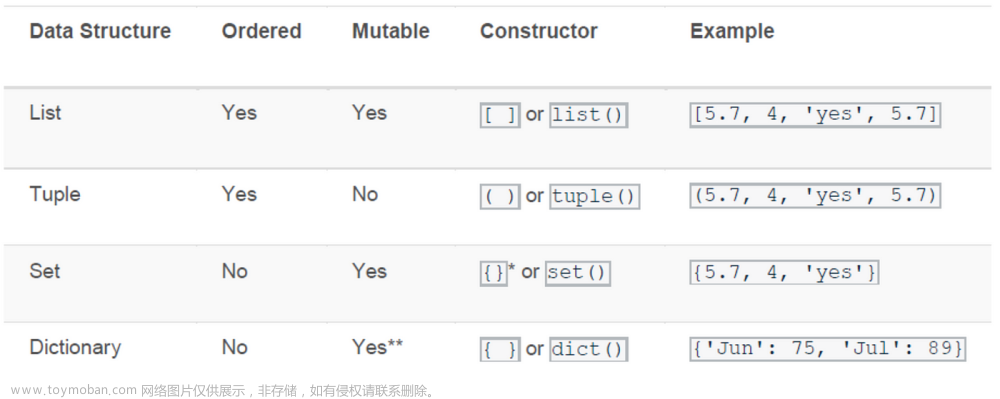sql代码
SELECT
tableName = D.name ,
tableIntroduce = isnull(F.value,
''),
sort = A.colorder,
fieldName = A.name,
catogary = B.name,
bytes = A.Length,
lengths = COLUMNPROPERTY(A.id,
A.name,
'PRECISION'),
scales = isnull(COLUMNPROPERTY(A.id,
A.name,
'Scale'),
0),
isOrNotNull =
Case
When A.isnullable = 1 Then '√'
Else ''
End,
primarays =
Case
When exists(
SELECT
1
FROM
sysobjects
Where
xtype = 'PK'
and parent_obj = A.id
and name in (
SELECT
name
FROM
sysindexes
WHERE
indid in(
SELECT
indid
FROM
sysindexkeys
WHERE
id = A.id
AND colid = A.colid))) then '√'
else ''
end,
defauts = isnull(E.Text,
''),
annotations = isnull(G.[value],
'')
FROM
syscolumns A
Left Join
systypes B
On
A.xusertype = B.xusertype
Inner Join
sysobjects D
On
A.id = D.id
and D.xtype = 'U'
and D.name <> 'dtproperties'
Left Join
syscomments E
on
A.cdefault = E.id
Left Join
sys.extended_properties G
on
A.id = G.major_id
and A.colid = G.minor_id
Left Join
sys.extended_properties F
On
D.id=F.major_id and F.minor_id=0
--where d.name='BigTable' --如果只查询指定表,加上此条件
Order By
A.id,A.colorder 
python 代码
#2023-01-29 22:30:35.660
#已通过
from datetime import datetime
import os
import pymssql as pymssql
import xlwt
def getData():
connect = pymssql.connect('192.168.121.130', 'sa', 'Aa123456789', 'jiradb')
if connect:
print("连接成功!")
cur = connect.cursor()
query = """ SELECT
tableName = D.name ,
tableIntroduce = isnull(F.value,
''),
sort = A.colorder,
fieldName = A.name,
catogary = B.name,
bytes = A.Length,
lengths = COLUMNPROPERTY(A.id,
A.name,
'PRECISION'),
scales = isnull(COLUMNPROPERTY(A.id,
A.name,
'Scale'),
0),
isOrNotNull =
Case
When A.isnullable = 1 Then '√'
Else ''
End,
primarays =
Case
When exists(
SELECT
1
FROM
sysobjects
Where
xtype = 'PK'
and parent_obj = A.id
and name in (
SELECT
name
FROM
sysindexes
WHERE
indid in(
SELECT
indid
FROM
sysindexkeys
WHERE
id = A.id
AND colid = A.colid))) then '√'
else ''
end,
defauts = isnull(E.Text,
''),
annotations = isnull(G.[value],
'')
FROM
syscolumns A
Left Join
systypes B
On
A.xusertype = B.xusertype
Inner Join
sysobjects D
On
A.id = D.id
and D.xtype = 'U'
and D.name <> 'dtproperties'
Left Join
syscomments E
on
A.cdefault = E.id
Left Join
sys.extended_properties G
on
A.id = G.major_id
and A.colid = G.minor_id
Left Join
sys.extended_properties F
On
D.id=F.major_id and F.minor_id=0
--where d.name='BigTable' --如果只查询指定表,加上此条件
Order By
A.id,A.colorder """
cur.execute(query)
data = cur.fetchall() # 元组类型
return data
def exportExcel(name):
data = getData()
myExcel = xlwt.Workbook('encoding=utf-8')
# 定义表的宽
sheet1 = myExcel.add_sheet(name, cell_overwrite_ok=True)
sheet1.col(0).width = 300 * 20
sheet1.col(1).width = 400 * 20
sheet1.col(2).width = 100 * 20
sheet1.col(3).width = 300 * 20
sheet1.col(4).width = 256 * 20
sheet1.col(5).width = 180 * 20
sheet1.col(6).width = 180 * 20
sheet1.col(7).width = 100 * 20
sheet1.col(8).width = 100 * 20
sheet1.col(9).width = 100 * 20
sheet1.col(10).width = 180 * 20
sheet1.col(11).width = 800 * 20
# 设置居中
a1 = xlwt.Alignment()
a1.horz = 0x02
a1.vert = 0x01
style = xlwt.XFStyle() # 赋值style为XFStyle为初始化样式
style.alignment = a1
today = datetime.today(
) # 获取当前日期,得到一个datetime对象如:(2019, 7, 2, 23, 12, 23, 424000)
today_date = datetime.date(today) # 将获取到的datetime对象仅取日期如:2019-7-2
items = [
'数据表', '表名', '字段序号', '字段', '类型', '占用字节数', '长度', '小数点', '是否为空', '是否为主键',
'默认值', '注释'
]
for col in range(len(items)):
sheet1.write(0, col, items[col])
# 合并第二列的name,从content获取第一列数据,[("Choleen","xxx"),()]
first_col = []
for i in range(len(data)):
first_col.append(data[i][0])
print("first_col:", first_col)
# 去掉重复的列数据,并顺序不变
nFirst_col = list(set(first_col))
nFirst_col.sort(key=first_col.index)
print("nFirst_col:", nFirst_col)
row = 1
for i in nFirst_col:
count = first_col.count(i) # 计算重复的元素个数
mergeRow = row + count - 1 # 合并后的上行数,
sheet1.write_merge(row, mergeRow, 0, 0, i, style) # 第一列
sheet1.write_merge(row, mergeRow, 1, 1, i, style)
row = mergeRow + 1 # 从下一行开始写入
# 获取data[i]中的第二个元素,循环写入
for row in range(len(data)):
for col in range(1, len(data[row])):
result = data[row][col]
str = typeof(result) # 获取类型
if str == None: # 不能识别的类型,需要转换
result = result.decode('utf-8')
sheet1.write(row + 1, col, result, style)
fileName = name + '.xls'
rootPath = os.path.dirname(os.path.abspath('ExportSqlServer.py')) + '\\'
print(rootPath)
flag = os.path.exists(rootPath + fileName)
if flag:
os.remove(rootPath + fileName)
myExcel.save(fileName)
else:
myExcel.save(fileName)
def typeof(variate):
type = None
if isinstance(variate, int):
type = "int"
elif isinstance(variate, str):
type = "str"
elif isinstance(variate, float):
type = "float"
elif isinstance(variate, list):
type = "list"
elif isinstance(variate, tuple):
type = "tuple"
elif isinstance(variate, dict):
type = "dict"
elif isinstance(variate, set):
type = "set"
return type
if __name__ == '__main__':
print("这是sqlServer导出的数据字典")
# response = chardet.detect(b'\xe7\x94\xa8\xe6\x88\xb7\xe8\xa1\xa8')
# print(response)
exportExcel("user表")

遇到报错,连接字符串密码当时填写错了文章来源:https://www.toymoban.com/news/detail-631024.html
 文章来源地址https://www.toymoban.com/news/detail-631024.html
文章来源地址https://www.toymoban.com/news/detail-631024.html
到了这里,关于Python导出SqlServerl数据字典为excel的文章就介绍完了。如果您还想了解更多内容,请在右上角搜索TOY模板网以前的文章或继续浏览下面的相关文章,希望大家以后多多支持TOY模板网!











